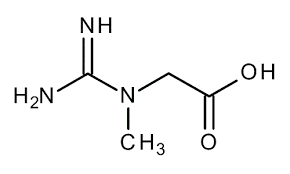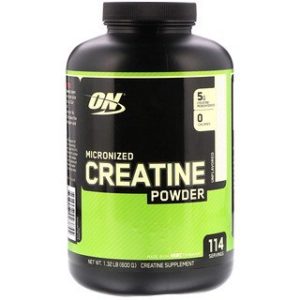
Creatine is probably one of the oldest supplements out there, but because it’s been around for so long people tend to overlook it in their current supplement stack. Maybe it’s because everyone is always looking for the newest, coolest and best thing being released so it’s not as fashionable anymore. Just because creatine isn’t new and sexy anymore does not mean it is any less effective, let us just remind ourselves of why it should be a staple in pretty much everyone’s supplement protocol.
For the unaware, creatine is something found in meat which when it is absorbed into the muscle cell will draw extra water in with it too. This hydrating effect within the body and muscles has a host of benefits which we will get into in a minute, but like anything in the health and fitness industry it has it’s fair share of myths and misconceptions surrounding it. The reason it is a good idea to supplement with creatine instead of getting it solely through your diet is because creatine is found in such small concentrations in meat that to get enough of it to elicit the benefits I’m going to talk about, you’d have to be eating an absolute tonne of meat, which is hard and will send your calories up higher than you want!
Creatine is up there with caffeine and whey protein as one of THE most researched supplement on the planet simply because it has been around for so long, with the vast majority of all the research backing up it’s big claims. The most ‘proven’ form of creatine is ‘Creatine Monohydrate’, beware of companies trying to sell you new and improved versions such as ‘Creatine Ethyl Ester CEE’, ‘Krealkalyn’ and ‘Tricreatine Malate’ because they’re more expensive and no where near as effective.
The Benefits
- Increased strength – (Cramer et al. 2007) & (Rawson et al 2003)
- Increased the training load that can be tolerated therefore increased hypertrophy (muscle building) – (Bemben et al 2005)
- Improved recovery – (Cottrell et al 2002)
- “Amplifies training induced adaptations” – (Olsen et al 2006)
These are the typical benefits people can expect to get from the creatine supplementation hydrating the muscle cells, but it’s not just resistance training enthusiasts that can benefit from this. Endurance athletes can increase their lactate threshold (the tipping point at which the lactic acid in the muscle is accumulating faster than the systems in the body can get rid of it), so by doing this they can maintain a faster pace and it takes longer to reach exhaustion. It will also increase muscle glycogen storage too, which is the amount of energy converted from food that is stored in the muscles, this would be like fitting your car with a larger fuel tank.
There are other benefits too such as improved cognitive function which was shown in a study by Rae et al 2007 in which subjects were seen to have increased working memory and intelligence from just 5g creatine per day. It has even been shown to increase performance in those who are sleep deprived in a study by McMorris et al 2006, so all you parents with young kids (or just you ravers) out there starved of sleep, get some creatine into your supplement stack so you can still perform in the gym!
As I said earlier, creatine is usually found in meat, but only in small amounts. This can pose as a problem for vegans and vegetarians as they wont be getting any form of creatine at all, so it’s even more beneficial for people without animal protein in their diet to supplement with creatine monohydrate. This was actually backed up by research from Burke et al 2003 where they found improvements such as an increase in lean mass and total work performance from vegetarians and vegans supplementing with creatine compared to a placebo group.
The Myths and Misconceptions
Without going into loads of detail I’m just going to say creatine DOES NOT cause dehydration (in fact the opposite, that’s why we take it!), kidney damage, muscle cramps or cancer.
The cancer myth actually came from France (I’m fairly sure creatine is still illegal in France) because once upon a time a french researcher was doing some research on renewable energy sources, and he charcoaled a pig. Obviously within the pigs meat was creatine, which after being charcoaled became slightly carcinogenic, which then lead him to publish a paper on how creatine will definitely give you cancer. Rest assured though so long as you don’t put your tub of creatine in the oven on full blast until it charcoals THEN take it…you’ll be fine, and even if you did you’d probably still survive.
You also don’t need to do a ‘loading phase’, which was a popular belief back in the day when the supplements first became widely used. The manufacturers would advise a loading phase of a very high dose then a maintenance dose thereafter, however after being researched it has been debunked as a bit of a myth and a way of you using the product faster and having to buy more. Once the muscle cell is fully saturated you don’t benefit from extra so just take between 5g and 10g per day and you’ll be fine. It is also of little significance at what time of day you take it, just get it in.
To Summarise
Creatine is a very effective, very cheap, very safe and very accessible supplement to take to increase performance therefore indirectly muscle gain, fat loss etc. You can get it in every supplement shop or online (my preferred product being ‘Optimum Nutrition’s Creatine Monohydrate’ or ‘Universal Nutrition’s Creatine Monohydrate’) and I would say that 99% of people who exercise would greatly benefit from taking it.



 WhatsApp us
WhatsApp us 
No comments yet, but you can be the first